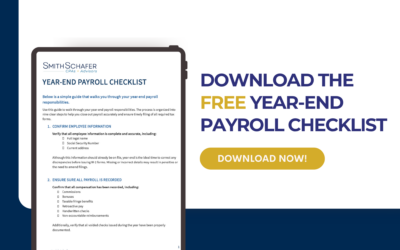IRC Section 179 permits “expensing,” or first-year tax deduction, of outlays for business equipment that otherwise would be recovered through depreciation over many years. For 2017, expensing the costs of up to $510,000 of equipment is allowed, with a phase- out beginning after $2.03 million of purchases.
Example 1: ABC Corp. spends $400,000 on equipment and off-the-shelf computer software equipment in 2017. The company can deduct $400,000 this year on those purchases. To qualify for this Section 179 tax treatment in 2017, the equipment or software must be purchased and placed into service by December 31.
Example 2: DEF Corp. spends $800,000 on qualified items in 2017. The first $510,000 can be deducted immediately, but the other $290,000 must be depreciated.
Example 3: GHI Corp. spends $2.4 million on equipment and software in 2017. Above $2.03 million, there is a dollar-for-dollar phaseout of IRC Section 179 tax benefits, so the $370,000 phaseout limits first year deductions to $140,000. The remaining $2.26 million must be depreciated.
Bountiful Bonus
Beyond IRC Section 179,“bonus” depreciation is in effect in 2017. Companies can depreciate 50% of the cost of relevant equipment acquired and placed in service this year—that would be a $145,000 deduction in the case of DEF Corp. in example 2 (50% of $290,000), in addition to the $510,000 deduction under IRC Section 179. Bonus depreciation will drop from 50% to 40% in 2018 and to 30% in 2019; this tax break applies only to new equipment, whereas Section 179 expensing applies to used and new equipment.
Sooner or Later
As explained previously, there is considerable uncertainty about whether tax legislation will pass this year and what such a law might include. Lower tax rates are a possibility. Consequently, you might plan to defer business income into 2018, when tax rates might drop, and accelerate company deductions into 2017 to offset highly taxed income. In terms of deferring income, if your company uses the cash method of accounting, you could delay sending out invoices late in the year, so you will receive the payments (and owe the tax) in 2018. Deferring income can be more challenging if your company uses the accrual method of accounting, but, in certain circumstances, you may be able to defer income, even where you have been paid in advance.
Smith Schafer can let you know if this is a practical approach for your firm and help with the required paperwork. Even if tax rates do not drop under a new law, deferring income—and the resulting tax—for a year may be helpful for your company’s cash flow. Similarly, accelerating deductible expenses from early 2018 to late 2017 may be advisable. Necessary equipment repairs might be pushed forward, for example.
If your company pays substantial bonuses to employees, consider the timing as 2017 ends. Cash method businesses might pay those bonuses in December. Companies on the accrual method generally can deduct bonuses to unrelated employees in 2017, if their obligation to pay the bonuses is fixed and determinable at year-end and they make the bonus payments within 2½ months after year-end.
Stay informed with current business, industry, accounting and tax news. Click here to subscribe. If you have specific questions regarding your tax situation click here to contact us.



